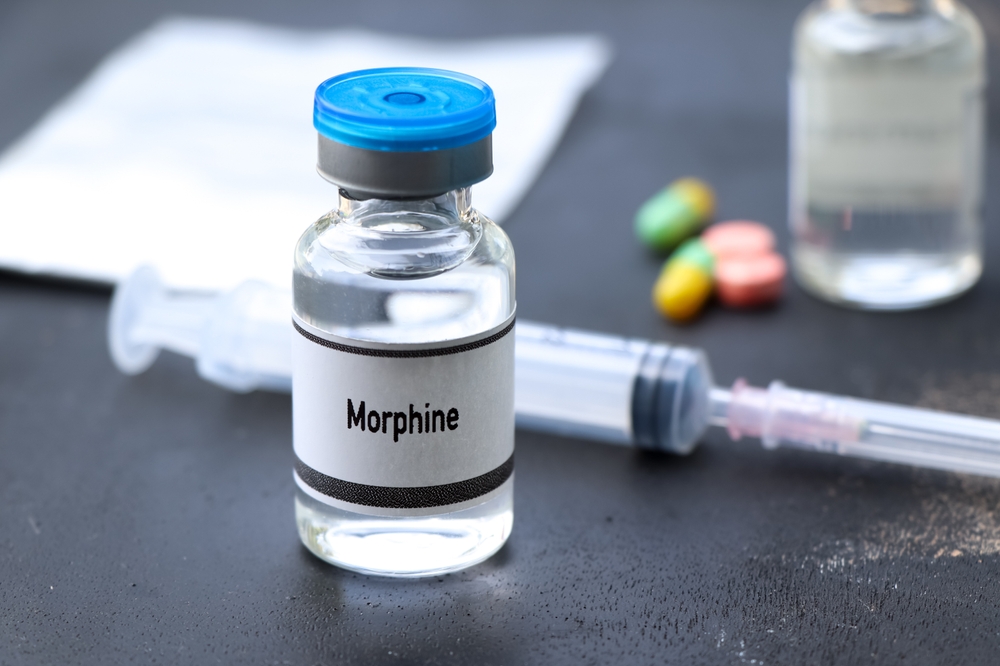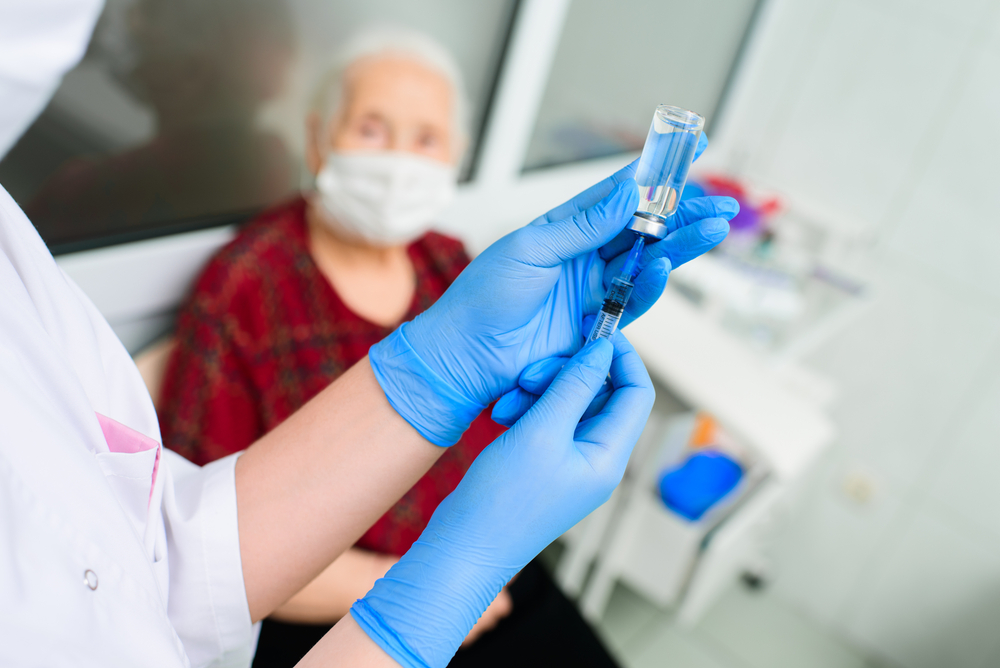Last Updated:
May 16th, 2025
Morphine Addiction | Symptoms, Effects and Causes
For centuries, morphine has been used across the globe for its powerful pain-relieving capabilities. However, these potent effects also make morphine a drug with a high potential for abuse, leading to serious issues like morphine addiction and overdose. Sometimes, these can have deadly consequences, and in 2021, the UK saw a record high of 1,337 deaths related to morphine and heroin poisoning. Recognising the risks associated with morphine and providing help to those struggling with addiction is crucial for avoiding more tragic deaths.

What is morphine?
Morphine is a naturally occurring opioid that is extracted from the opium poppy plant. It has extensive medical uses and is particularly effective in controlling severe pain following surgery and in chronic conditions.
Instead of addressing the pain at its origin, morphine works by altering how the brain perceives pain so you don’t experience it as acutely. In end-of-life care, morphine can also play a vital role in easing the suffering of those in the final stages of terminal illnesses.
Morphine’s long history means that we are well versed not just in its benefits but in its downsides, too. Some of the common side effects of morphine include drowsiness, constipation, nausea and confusion. However, more serious problems can arise too including not being able to breathe properly, dangerous blood pressure drops and morphine addiction.
What is morphine addiction?
Morphine addiction happens when someone can’t stop using morphine even when it causes harm. It often begins with a doctor’s prescription for real pain issues but this can easily turn into dependence if you are not careful. This shift might happen if someone uses morphine longer than needed, takes more than the doctor said or uses it just to feel good.
As you use morphine more frequently, its effectiveness diminishes. You might then increase your dose to achieve the same relief from pain or euphoric feeling. This overuse can make your brain heavily dependent on morphine so much so that stopping or decreasing your use can cause your brain to react violently. This triggers severe withdrawal symptoms as your bodily systems try to cope with the absence of the drug.
But morphine can also quickly become a go-to for a number of psychological and emotional issues. These can include depression, stress and fear of pain returning after being prescribed morphine. This combination of physical and psychological ties creates a deep-seated addiction, requiring specialised treatment that addresses both aspects.
Spotting the warning signs of morphine addiction
Morphine addiction often begins not with a shock but with minor changes that can quickly spiral out of control. Here are some morphine addiction symptoms that may suggest a problem is developing:
- Morphine isn’t for your pain relief anymore but is for sedation or pleasure.
- All your resources are funnelling into acquiring more morphine.
- You are neglecting work or school due to morphine use.
- Your morphine habit is causing friction with loved ones.
- Withdrawal symptoms appear if you try quitting.
- You have had to increase the dose to feel morphine’s effects.
- You are becoming dependent on morphine to enjoy life.
- You keep a hidden stock of morphine or lie to your doctor about running out.
- Irritability when you can’t use morphine.
- You ignore the negative impacts or can’t stop despite recognising them.

If these morphine addiction signs and symptoms resonate with you, it is a clear signal to reach out for professional assistance. Starting treatment might seem frightening, but the sooner you begin, the sooner you can mend the damage and start anew.
What causes morphine addiction?
The journey into morphine addiction is often complex, not happening simply by chance but influenced by a mix of individual factors. These often include a combination of:
The mental and physical dangers of a morphine addiction
Morphine is an incredibly powerful drug and so its adverse effects can be incredibly destructive. These effects may include:
How to overcome morphine addiction
Effective treatment for morphine addiction starts with opioid detox. This is where doctors guide you to reduce your morphine use slowly through tapering which is when you take a little less each time so your body can adjust. To help you feel better during this, you might get medicines like methadone to ease the resulting withdrawal symptoms or to replace the morphine doses.
After the initial detox stage, it is then crucial to tackle the psychological roots of the addiction. Opioid rehab programmes, available through the NHS and private providers in the UK, are designed to offer this comprehensive support with a range of different therapies and treatments.
Most experts agree that choosing an inpatient programme is usually the best course because it places you in a dedicated healing environment, far from the everyday triggers that might lead to relapse. Top rehab centres provide a range of evidence-based and holistic therapies and continued support even after you leave the programme.
How to get help for morphine addiction
If morphine addiction is affecting you or someone you know, Addiction Helper can help you kickstart your recovery. Morphine addiction is a potentially deadly condition but with the correct approach and ongoing support, recovery is not just a hope but a reality. Contact us today and we can help you find the best way forward.
Our compassionate team are ready and available to take your call, and guide you towards lasting the lasting addiction recovery you deserve.
Frequently Asked Questions
(Click here to see works cited)
- McClung, Colleen A. “The molecular mechanisms of morphine addiction.” PubMed, https://pubmed.ncbi.nlm.nih.gov/17139840/. Accessed 18 January 2025.
- UK-Rehab. “Information on Opiates and Opiate Addiction | UK Rehab.” UK-Rehab, https://www.uk-rehab.com/opiate-addiction/. Accessed 18 January 2025.
- Listos, Joanna et al. “The Mechanisms Involved in Morphine Addiction: An Overview.” International journal of molecular sciences vol. 20,17 4302. 3 Sep. 2019, doi:10.3390/ijms20174302. Accessed 18 January 2025.
- UK-Rehab. “Treatment For Morphine Addiction | UK Rehab.” UK-Rehab, https://www.uk-rehab.com/treatment-rehab/morphine-addiction/. Accessed 18 January 2025.

